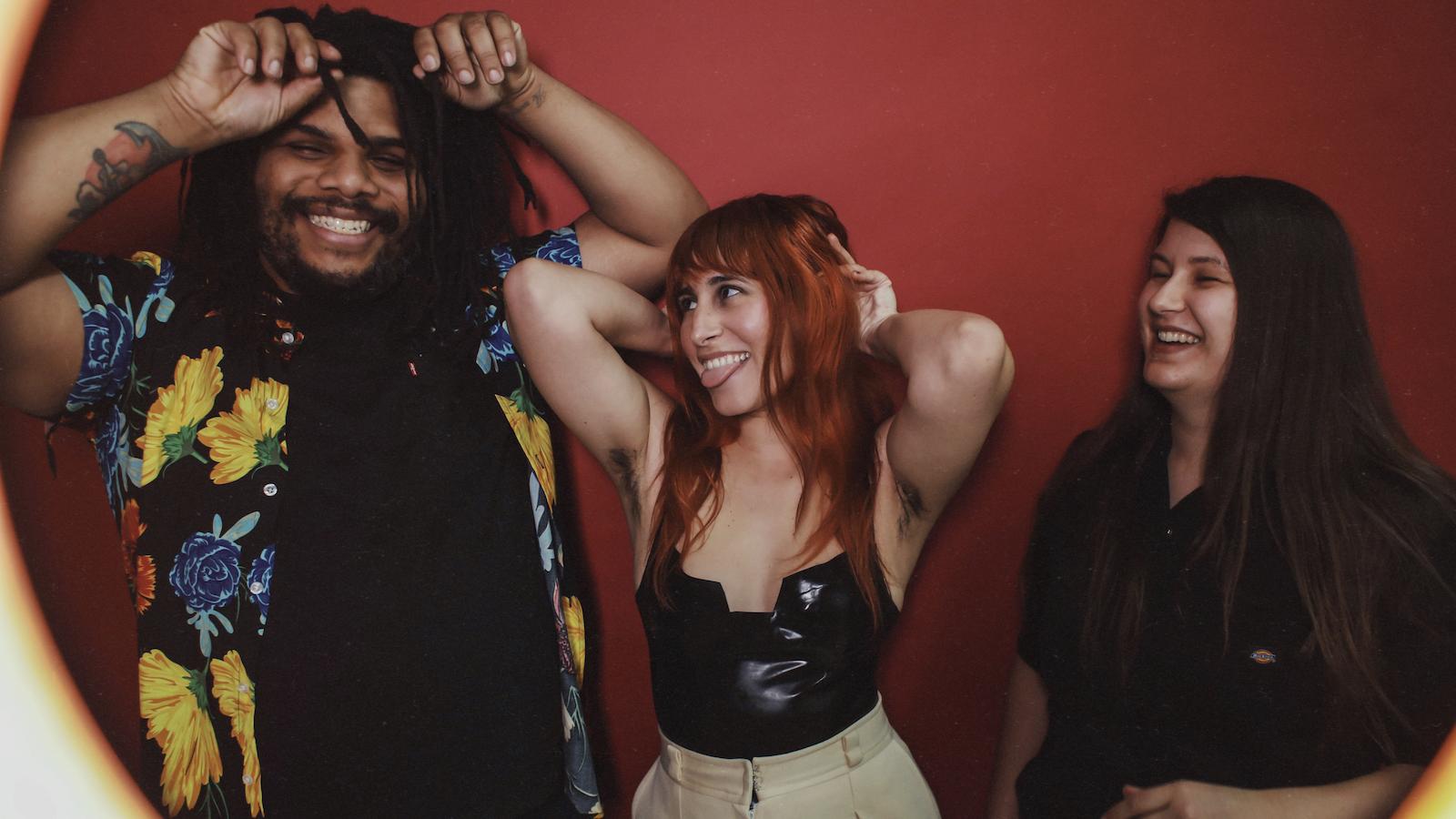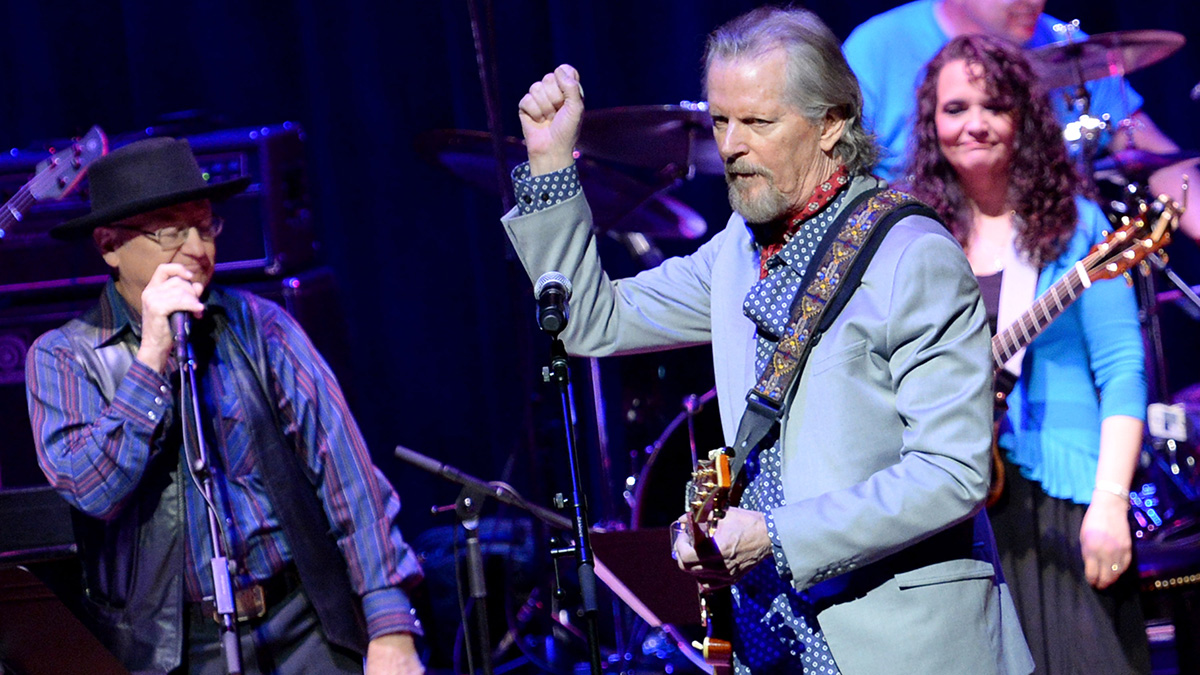Mannequin Pussy’s Marisa ‘Missy’ Dabice: “It felt like a lifeline to suddenly have something to pour ourselves into”
The new EP from Mannequin Pussy saved the trio from the brink of collapse after an especially rough 2020 – so it’s fitting they called it Perfect

Hot on the heels of their breakthrough third album Patience, 2020 was poised to be the year Mannequin Pussy officially took over the world. It was a well-earned triumph for the Philly punks, following a decade of slugging it out in bars and basements around the US. But just as they were set to make their mark on the world stage, COVID-19 came and wreaked havoc on the music industry at large. Like virtually everyone else in the arts, Mannequin Pussy were forced to put their dreams on ice while the world around them crumbled.
In the eye of the storm, frontwoman Marisa ‘Missy’ Dabice wondered if the band would make it out alive. It certainly seemed more lucrative for them all to pack up and start over in more traditional professions, at least – especially since their longstanding guitarist Thanasi Paul had done just that at the start of the year. With no clear path ahead – and having spent most of the year apart – Missy booked a short block of studio time that would make or break the band.
Just to make sure they weren’t wasting money – especially when it was tighter than ever – the band went in two pre-written songs from the Patience era. But just as luck (and the adamantine strength of their bond) would have it, the band wound up reconvening with a wealth of ideas. The double A-side quickly blossomed into a five-track EP of their sharpest and most impassioned material yet, with the seeds planted for an even more explosive fourth album.
As the band gear up for their second attempt at world domination, we caught up with Missy to learn more about how Perfect saved Mannequin Pussy, why it holds an especially special place in Missy’s heart, and how it sets the stage for a bright future ahead.
After being apart for so long, were you all just exploding with ideas when you got back into a room together?
Kind of! Yeah, it was definitely the fastest we’ve ever written, for sure. We are a band that, historically, has really taken our time with songwriting. In the very beginning, it was like you’d start writing something, you’d be done with it in 15 minutes and you’d be like, “Alright, next song!” And then over the years, it just kind of became this obsessive thing where we would work on a song for a year, just trying out all the possible melodies and lyrics and arrangements. So it was nice to be in a spot where we weren’t so precious with it, and we just allowed what came off the bat to be.
When you listen back on the record, do you feel like that impulsive energy seeps through?
I think so… Maybe a little bit. I kind of feel like this collection of songs almost sounds a little more polished – like, it sounds more polished than I feel.
Why is that?
I mean, I just feel so drained and mentally confused, and trying to understand what the future looks like – not just for myself, but for everyone around me as well, and for people all over the world. This is the weirdest time, I think, in recent human history – so y’know, going into a studio and being able to craft these songs, it felt like kind of I was able to take control over something again.
Get The Pick Newsletter
All the latest guitar news, interviews, lessons, reviews, deals and more, direct to your inbox!
And in other ways, it’s kind of bittersweet to listen back to these songs, because around the time we were recording them, our longterm guitarist [Thanasi Paul] decided that he didn’t want to do the band stuff anymore. He wants to, y’know, get married and have babies and stuff. So there were big, big changes all around last year – I was happy that we got to make some things together before those changes really took hold.
Did the pandemic give you a new, or amplified sense of appreciation for the band?
No [laughs]. I think if anything, I felt that it’s much harder. I definitely wasn’t surprised when Thanasi was like, “I’m ready to do something new.” Because I think the moment that you take away touring – the moment you take away this comfortable place that we’ve been in all these years – it gives everyone a lot of space to sit around and think, “Am I doing exactly what I want with my life? Am I living the way I want to be living?”
I had this theory early on last year, I was like, “I think a lot of people are going to quit bands. I think a lot of people are going to have these really heavy conversations with themselves.” And I personally am coming away from it like, “Yes, I want to continue to make music for the rest of my life, and my channel emotions in that way.”
So did this EP come out of necessity, then, to keep your creative output afloat?
Yeah, I think [Colin ‘Bear’ Regisford, bass], Kaleen [Reading, drums] and I definitely became huge, strong unit last year – especially in the ways we talked to each other about what we were going through, and how we were feeling creatively. We all knew it was a risk, booking studio time and not having any songs. Because worst case scenario, you go in there and feel even worse than you did before you went in, because you weren’t able to pull something out of that time.
But it did feel like a lifeline in a lot of ways, to suddenly have something to pour ourselves into and to understand our feelings, and be able to write words and assign art to them. I don’t know, it just made sense. I spent a lot of time last year asking myself, “What’s the point of art and music, and doing these things?” But then when I reflect on how much of my time I’ve spent coping through other people’s creativity" – whether it was through films or TV shows or video games, or books or comics or music – I was like, “Yeah, this is what makes me feel like I’m connected to reality.”
Do you see the Perfect EP as a bridge between Patience and what will eventually become the fourth album?
Definitely. I could’ve totally seen all the songs that we made for Perfect being on Patience, had they existed then. They all kind of feel like an extension of that universe and those feelings – but starting to head somewhere new for us, too. It’s very exciting to think that there’s more things for us to create, and more sounds we can discover.
Do you see the next record taking a bit of a stylistic leap?
I hope so! I mean, that’s something I reflected on a lot last year – I’m honestly starting to feel like a neanderthal in the way I approach music. I know you’re definitely not supposed to say this – I certainly don’t know if my label would like me saying this when we’re trying to promote a record – but like, it feels f***ing archaic to be in a rock band sometimes! It’s a very primitive way of making music with people – y’know, you have your guitars and your bass and your drums – and something I asked myself so many times was, “Why?” Like, why are we continuing to make things in this very particular way, when I think we’re all kind of yearning to discover a new path?
Is it exciting to think about how you’ll explore those new paths?
Oh, yeah! I’ve been thinking a lot about what I would imagine rock music of the future sounding like.
What would it sound like?
I don’t want to think it would still be exactly what we created in 2020, where people are like, “Oh, ‘90s, great!” What would the most popular rock band on the planet sound like in 2045? It would probably still be the Foo Fighters [laughs].

Ellie Robinson is an Australian writer, editor and dog enthusiast with a keen ear for pop-rock and a keen tongue for actual Pop Rocks. Her bylines include music rag staples like NME, BLUNT, Mixdown and, of course, Australian Guitar (where she also serves as Editor-at-Large), but also less expected fare like TV Soap and Snowboarding Australia. Her go-to guitar is a Fender Player Tele, which, controversially, she only picked up after she'd joined the team at Australian Guitar. Before then, Ellie was a keyboardist – thankfully, the AG crew helped her see the light…
“I’ve never bought a guitar and I’m quite proud of that! I always tell people when they’re learning: there’s a guitar not being played”: Meet Sacred Paws’ Ray Aggs, the dextrous Tele-wrangler inventing new chords and capturing Thurston Moore’s imagination
“Even standing with the guitars is tricky”: Ritchie Blackmore's health sparks concern after update from wife and musical partner Candice Night




![[from left] George Harrison with his Gretsch Country Gentleman, Norman Harris of Norman's Rare Guitars holds a gold-top Les Paul, John Fogerty with his legendary 1969 Rickenbacker](https://cdn.mos.cms.futurecdn.net/TuH3nuhn9etqjdn5sy4ntW.jpg)





